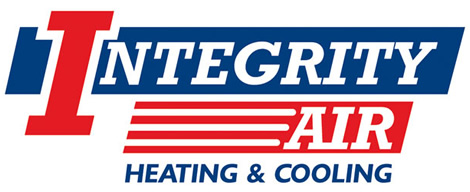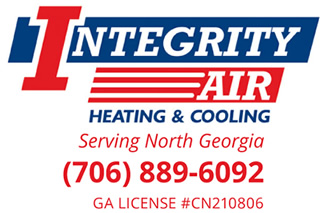Welcome to North Georgia where we’re known for beautiful mountains, scenic vistas, and fun things for families to do outside! As the weather grows colder and wetter, however, many of us decide to cuddle up indoors with family and friends, enjoying movies or binge watching TV, fireside chats, and meals around the table. The more time we spend indoors means that our indoor comfort and specifically, our indoor air quality becomes even more important.

Indoor air quality in homes is affected by indoor pollutants. Standard ventilation can increase indoor pollutant levels by not bringing in enough fresh air to dilute emissions from cooking, cleaning products, fireplace, even VOCs emitted by home furnishings and building materials, and by not carrying indoor air pollutants out of the home. High temperature and humidity levels (on rainy fall and winter days) can also increase concentrations of pollutants. Studies have shown that indoor air can be 5 times more polluted than the air outside. Unfortunately, no amount of dusting or vacuuming can ultimately fix the problem of airborne pollutants, and in fact, cleaning and cleaning products can increase the level of contamination. Contaminated air can lead to respiratory problems, headaches, and fatigue; it can irritate anyone suffering from allergies, asthma, COPD or other lung problems.
How to Breathe Easier
The most effective ways to improve indoor air quality is to reduce or remove the pollutants and to ventilate with clean outdoor air. Research shows that filtration can be an effective supplement to control and ventilation. A whole-house air purification system can greatly improve overall indoor air quality. Portable air cleaners are designed to work in a single room, but a more efficient central furnace or HVAC filtration system cleans air throughout the entire home.
Major types of air filtration include
HEPA filter: pulls air into a dense, paper filter and traps tiny particles (bacteria, mold spores, pet dander, dust)
Carbon filter: collects pollutants that create smells and odors (mold spores, tobacco, cleaning products, cooking fumes)
Ultra violet: attacks bacteria and viruses that are in the air, then breaks them apart rendering them harmless.
Ionic generator: sends out ions that latch onto airborne particles making them heavy. Pollutants then fall to the ground or become trapped in a collection plate.

Cleaner air has a positive impact on health!
According to the EPA, several studies using portable HEPA air cleaners have demonstrated improvements in cardiovascular and respiratory health including reducing asthma and allergy symptoms. Purified air can be very beneficial for quality sleep. A 2017 sleep study survey revealed that more than 70% of people surveyed felt better rested after sleep from using an air purifier. Other studies have linked air pollution to changes in mood and behavior, including anxiety. Air purifiers reduce pollution so you can feel better physically and emotionally.
Make a Decision for Better Health
Now that you know a little about why and how air purifiers work, it’s time to make a decision on what type and size of system is best for you and your family. Which type do you need (HEPA, Ionic, Carbon, UV), what size air purification system is most efficient for your home size and layout, budget for purchase and installation, ongoing energy and maintenance costs, warranty, etc? Whether you live in an apartment, townhome or single family home, an old home or are building a new home in Jasper, Ball Ground, Canton, Big Canoe, Bent Tree, Holly Springs, Woodstock, Nelson, or Tate, Integrity Air can help you protect your family by improving your overall indoor air quality with the right whole-house air purifier for you. Contact us or call the office for a FREE, no obligation evaluation and estimate (706) 889-6092.


